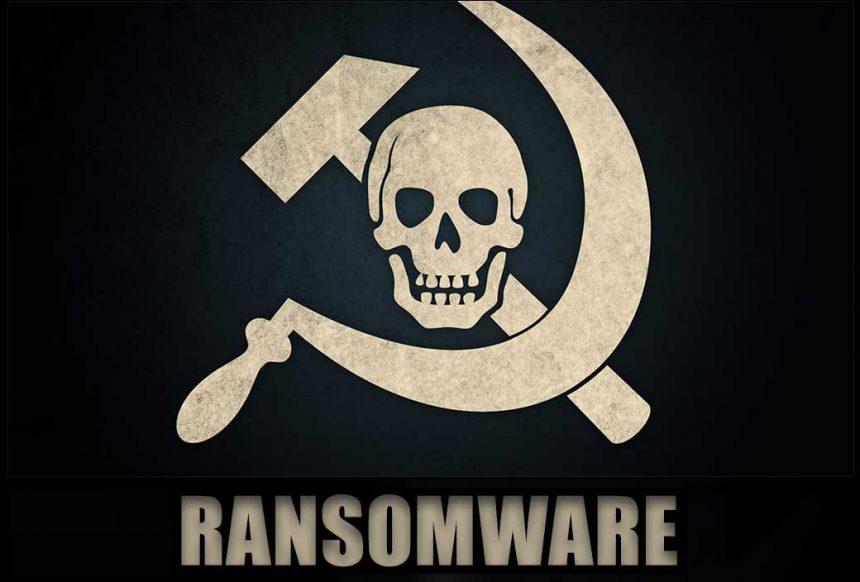Ransomware is one of the most dangerous types of malware, designed to encrypt or lock users out of their own data until a ransom is paid. This form of malware can have devastating consequences for individuals, businesses, and organizations alike. Cybercriminals use ransomware as a lucrative tool to exploit sensitive data, often targeting users who may not have adequate security in place. Victims are left with two difficult choices: pay a ransom or lose access to their valuable information permanently. One of the latest ransomware threats, Ymir ransomware, exemplifies these dangers and has become a severe issue for many computer users.
Remove annoying malware threats like this one in seconds!
Scan Your Computer for Free with Spyhunter
Download Spyhunter now, and scan your computer for this and other cybersecurity threats for free now!
Understanding the Ymir Ransomware Threat
Ymir ransomware is a malicious threat that infiltrates systems to encrypt user data, making it inaccessible without a decryption key that only the attackers possess. Once Ymir ransomware enters a device, it locks files with an encrypted extension, making them unusable. It typically adds extensions, constituted by a random character string, such as “.6C5oy2dVr6” to encrypted files, for example, turning a file named "document.pdf" into "document.pdf.6C5oy2dVr6," making it immediately clear which files are compromised.
After Ymir ransomware infects a system, it performs several harmful actions, such as encrypting files and creating ransom notes. The ransomware distributes its ransom note, often named "INCIDENT_REPORT.pdf," throughout various directories, informing users of their encrypted files and instructing them on how to pay a ransom in exchange for decryption keys. The note often includes a unique identifier and email addresses that victims must use to contact the attackers for payment instructions. Ymir ransomware is designed to coerce victims into making a payment, emphasizing the urgency by threatening data loss if they fail to pay the ransom.
Text presented in the ransom message (INCIDENT_REPORT.pdf):
#? What happened?
Your network has been compromised and attacked by hackers.
All files have been modified.
Sensitive information has been stolen and handed over to our
experts for analysis.
#? Why did this happen?
Your security system was weak, it allowed your company to be
hacked.
#? What are the possible consequences?
You won't be able to use your data, so the company is frozen. You
will lose money every day.
If you refuse to make a deal, your data will be published on the
internet, sold on darknet forums, shared with journalists and your
competitors.
You will suffer reputational damage, your stock will drop in value,
clients and sponsors will lose trust in you.
Also, if the incident becomes public, you will be noticed by law
enforcement agencies and then a long investigation with freezing
of your company will begin.
You'll get multiple fines in excess of the deal.
#? What do I get if I make a deal?
You get file recovery software. We'll remove the stolen data from our servers and provide proof.
You'll get an incident report and recommendations for protection.
You'll get a guarantee that our team will add you to our whitelist of
untouchable companies and we'll never come back to you again. We will not report the incident to anyone.
#? # Why are you doing this?
We're only interested in the money. We don't care about the rest. We also take pleasure in what we do.
#? How can I trust you?
You have no choice, either you lose everything or you trust us. We don't plan to deceive you. We operate in a public space, every
action we take is discussed.
If we defraud even 1 company, we will never be able to make a
good deal. We will definitely recover your files and we will definitely keep
everything confidential.
We are specialists with years of experience and we respect
ourselves and our reputation.
You'll see that we're a bargain when you contact us.
#? How do I proceed if I don't believe a word you say?
You can go to the recovery or the enforcers, but it will definitely
cost you more than dealing with us.
Recovery will buy our software with your token and sell it to you at
a 300% markup.
The enforcers will trample your company, talk to the lawyers, they
will tell you the consequences.
#? I'm the administrator of this network, what do I do?
Don't try to make a deal on your own, you won't have enough
salary for a few years.
Report the incident to your bosses. They'll find out anyway. We
have their contacts and we'll let them know in three days if no one
contacts us.
If you try to rebuild the network alone and hide the incident from
your bosses, you'll delay the inevitable. At some point, they'll hear
about it on the news and be furious that you denied them the
opportunity to save their company.
#? What do I do?
The first thing you should do is inform your bosses about the
incident.
You'll have to pay us to recover your files. Only we have the unique
token.
Don't try to use any third-party applications to recover your files,
they may be damaged irretrievably.
You need to contact us
You can send us 1-3 modified files and we will prove that we can
recover them. We will provide proof of the stolen data.
RecoverySupport@onionmail.org
To contact us, install qTOX messenger.
hxxps://github.com/qTox/qTox/releases/download/v1.17.6/setupqtox-x86_64-release.exe
Add our contact and we can make a deal.
Tox ID:
CF9AE1B27EAA4BF8C223735BEA15AAE23D5BA312B9D9061C805ABD99C373530DBDCC18B7C3BF
How Ymir Ransomware Infiltrates Systems
Ymir ransomware primarily infiltrates systems through malicious attachments in phishing emails, downloads from unverified websites, and exploit kits targeting outdated software. Attackers may use deceptive techniques to lure users into clicking on infected files or links, allowing Ymir ransomware to install itself silently. Once installed, it initiates its encryption process, locking files and demanding a ransom payment in exchange for their decryption.
Consequences of Ymir Ransomware Infection
The impact of Ymir ransomware is severe. All files with critical information—documents, photos, databases—become inaccessible to the victim without the decryption key, which only the attackers hold. Victims face a challenging situation where they must decide whether to pay the ransom and potentially encourage further attacks or risk losing valuable data permanently. Furthermore, ransomware attacks not only disrupt personal data but can also lead to financial losses, breaches of confidential information, and emotional distress for the victim.
Purpose of Ransomware: Holding Data Hostage for Profit
The core objective of ransomware, including Ymir ransomware, is to exploit users financially. The malware creators use encryption to hold data hostage, demanding payment in exchange for a decryption key. This business model has proven profitable for cybercriminals, as many users feel compelled to pay the ransom to retrieve their locked files. Ransomware continues to evolve and spread, driven by the attackers' financial motivations, making it a persistent threat to online safety.
Recognizing Ymir Ransomware Symptoms
If your system is infected with Ymir ransomware, you may notice several symptoms, such as:
- Files are renamed with the “.ymir” extension or other unusual extensions.
- The appearance of a ransom note file (e.g., “README.txt”) in multiple folders on your computer.
- Pop-up windows or desktop messages from the attackers, demanding payment for file decryption.
- Limited access to certain files, which may show error messages when you try to open them.
- Significant slowdowns in system performance due to background encryption processes.
Detection Names for Ymir Ransomware
If you suspect Ymir ransomware infection, check for the following detection names in your antivirus or anti-malware software:
- Ransom:Win32/Ymir
- Trojan.Ransom.Ymir
- Ransomware.Ymir
These identifiers can help confirm whether Ymir ransomware has compromised your system.
Similar Ransomware Threats
Ymir ransomware shares similarities with other ransomware threats that utilize similar tactics and encryptions. Notable examples include:
- LockBit - A ransomware family that encrypts files and demands a ransom for decryption.
- Stop/Djvu - Another common ransomware variant that encrypts user files and spreads through pirated software downloads.
- Maze - Known for data theft as well as encryption, threatening to leak data if the ransom is not paid.
Removing Ymir Ransomware
If you suspect that Ymir ransomware has infected your system, follow this comprehensive guide to remove it:
Remove annoying malware threats like this one in seconds!
Scan Your Computer for Free with Spyhunter
Download Spyhunter now, and scan your computer for this and other cybersecurity threats for free now!
- Disconnect from the Internet: Immediately disconnect your computer from the internet to prevent further spread of ransomware.
- Boot into Safe Mode: Restart your computer and press F8 or hold the Shift key while selecting Restart. Choose Safe Mode to prevent the ransomware from initiating any processes.
- Use an Anti-Malware Tool: Download and install a reputable anti-malware tool, such as SpyHunter. Run a full system scan to detect and remove Ymir ransomware and any associated malware files. SpyHunter offers a free scan to identify threats on your device.
- Check Startup Programs and End Malicious Processes
- Press Ctrl + Shift + Esc to open the Task Manager.
- Go to the Startup tab and disable any unfamiliar or suspicious programs.
- Check the Processes tab and end any processes linked to Ymir ransomware.
- Delete Temporary Files: Open the Run dialog (Windows + R) and type %temp%. Delete all files in this folder to clear potentially infected files.
- Restore from Backup (if available): If you have backed up your files previously, restore them from a clean backup source.
- Reboot Normally and Run a Final System Scan: After completing these steps, restart your computer in normal mode. Run another scan with SpyHunter or a similar tool to ensure no residual files remain.
Prevention Tips to Avoid Ransomware Infections
- Keep Software Updated: Regularly update your operating system, browsers, and software to patch vulnerabilities.
- Use Strong Passwords: Secure all accounts with strong, unique passwords to prevent unauthorized access.
- Be Cautious with Emails: Avoid opening attachments or links in emails from unknown senders.
- Backup Files Regularly: Always keep a backup of your files on a secure, external device.
- Install Anti-Malware Protection: Protect your system with robust anti-malware software like SpyHunter to detect threats before they cause damage.
Download SpyHunter for Enhanced Security
To ensure comprehensive protection against ransomware like Ymir, we recommend using SpyHunter. With SpyHunter, you can perform a free system scan to identify ransomware and other malware infections. SpyHunter’s powerful detection engine helps detect and remove ransomware, giving users peace of mind against potential data loss and system compromises.





